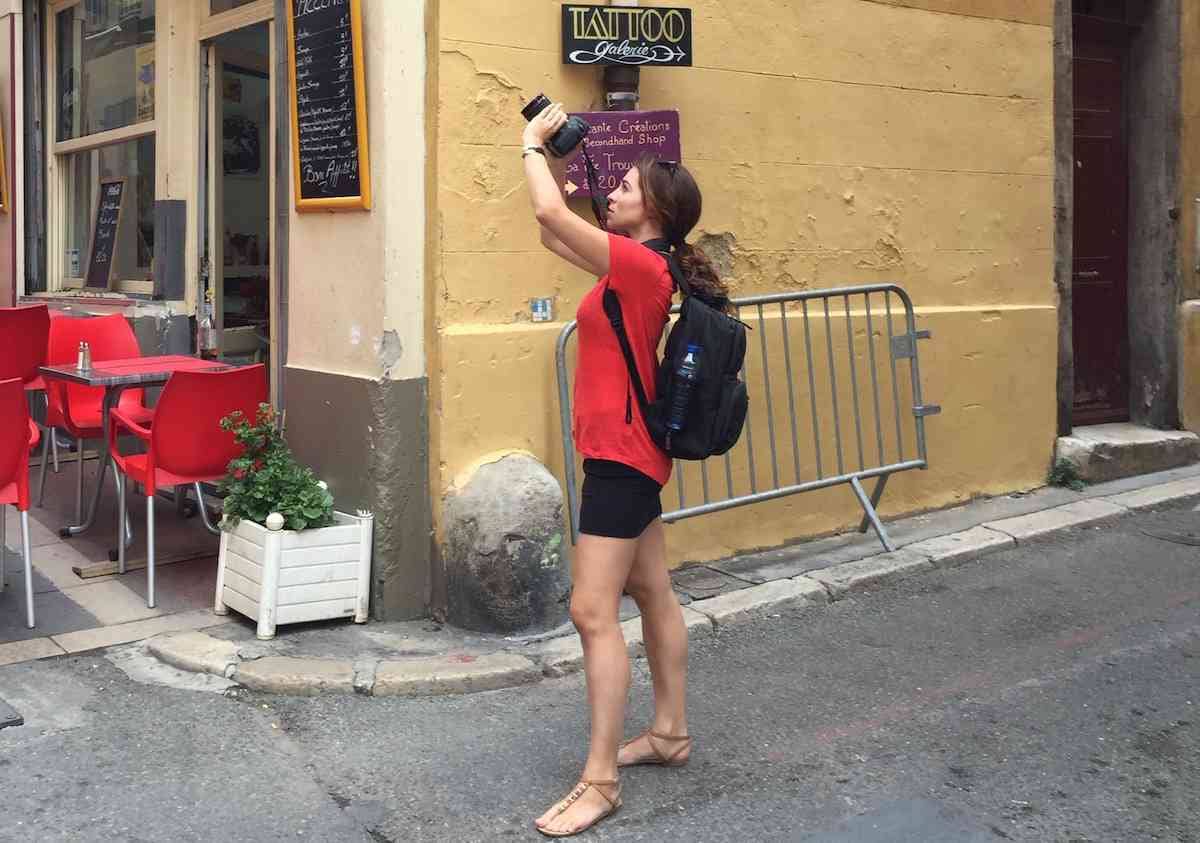Basic Guide to Not Being a Terrible Traveler
Did you know that as of 2012, more than 1 billion tourists arrivals have been recorded throughout the world? I think this is an incredible step forward for the global community; the more people interact with other countries and other cultures, the more prejudices, misconceptions, and conflicts we can push to the side, so we can focus on moving forward in a unified way.
Disclaimer: Lose the Map contains affiliate links and is a member of Amazon Services LLC Associates Program. If you make a purchase through an affiliate link, I receive a small commission at no extra cost to you.
However, 1 billion tourists (and counting) is a very large number, and if tourists don’t behave properly, they can also have a negative impact on the communities accepting them.
Here are general guidelines for not pissing off the people in the places you’re visiting, or coming across as an insensitive, ignorant outsider – which you will probably do enough by accident on your travels, so don’t make your situation worse.

Camera Etiquette – Follow the Golden Rule

Whereas 20 years ago a tourist may have packed a simple camera along with their luggage, the average tourist today will pack a DSLR, a GoPro, a selfie stick, or even a drone before heading on vacation. Everyone has become a photographer, but unfortunately everyone has not become so great at following general photography etiquette.
The first obvious tip is to NEVER take a photograph where there are signs EXPLICITLY BANNING photographs. Seriously, people, I see this everywhere, and I don’t understand it anymore. How did you not learn about this on your first field trip in third grade? How?!
Other than that, there are two basic rules for being a respectful photographer on your travels:
1) “Do to others what you want them to do to you”.
2) If you are unsure whether you are violating Rule #1 or not, ASK.
So. Simple.
If you are in another country observing a local religious ceremony, and have not asked if you can take pictures beforehand, think if you would be alright with people coming into your place of worship and snapping pictures 2 inches from your face while you are praying.
If you are observing a local artisan working on his craft, think how you might feel if someone came into your office and followed you with a camera while you were filing expense reports.

Again, I’m not saying you can never take photos in these situations, as beautiful photos of such practices obviously exist. I’m just saying, in situations where you are not sure if you should take a photo, or would not feel comfortable if it was you being photographed, ask beforehand, and then respect whatever answer you get.
Drinking: You May Be Doing It Wrong
Here is a general rule for how much alcohol you should consume in any given situation abroad: if you are the drunkest person/group in the room, you are doing it wrong.

Theoretically the advice should be to drink responsibly, but practically, at some point on our travels we all probably won’t. Instead, I’m just going to tell you to confine crazy drunkeness to the right time and place.
If you are at some festival or bar where everyone, locals included, is getting their drink on, it’s probably alright to go ahead and have a couple more.
If you get trashed at a hostel with four other people, do not then wander the neighborhood at 3 AM, yelling and screaming and looking for more alcohol, and then toss out your stomach on someone’s front porch. Don’t disturb and wreck the neighborhood when you’re drunk, because people live there, work there, and walk there, and someone else is going to have to deal with your mess tomorrow.
Dress For the Country You’re In, Not the Country You Left
Have some awareness of your new country’s customs before heading out for the day. I’m not saying that if you are in a strict, traditional Muslim nation you should put on a burka (though in some places you may have to cover head to toe), but maybe leave the crop top and short shorts at home. Or, you know, pack them but head to Miami instead of wherever you were originally going. As a general rule, covering up shoulders, cleavage, and anything above the knees is always a good idea in more traditional communities.
If you’re not sure exactly how to dress for what occasion, there are plenty of resources online. Conde Nast put out a great guide called “Etiquette 101: Dress Codes”, that will help you find the right dress code for each country.
Don’t Whine or Boast in Front of Locals
This is a rule you should especially be aware of in developing countries. If you have to ride an uncomfortable bus in Vietnam, or deal with dirt roads in Mozambique, don’t whine about it to locals (or constantly and loudly in front of locals) who have to deal with it every day.
Also, while most travelers have the common sense not to boast about the new Rolex they got while visiting a village in Ghana, plenty of travelers, especially in Southeast Asian countries, will loudly exclaim about how cheap and affordable everything is on their Western salary.
Don’t. Do that. In front of local people.

I know it might not seem like it at first, but what you’re basically saying to local people is “I was born in a rich country and have so much more money than you that I actually find it ridiculous!”.
Dining out at a nice place in Thailand might be really cheap for you on your salary, but not so much for the waiter serving you who probably makes around $3 a day. Reminding him that all these local experiences are barely making a dent in your pocket, when they would probably cost more than a few weeks’ salary for him, is not a great way to make friends. It is, however, a great way to get served whatever food expired last week.
Don’t Be a Travel Snob
This last one can apply while on the road, but should also be followed when you get home. It’s the hardest one to avoid, and I confess that I may be guilty of this sometimes, as I’m sure most of my well-traveled friends are.

Let’s set up the situation: you love to travel, you do it a lot, you love to talk about it – that’s wonderful.
If you are in a group where everyone is a seasoned traveler, go ahead and talk about which airports are the worse, how great that one little neighborhood in Rome is, or debate Morocco vs. Tunisia. Nerd it up, travel style.
However, sometimes you will be in a group where people don’t travel so much, either because they can’t save up enough, they want to spend time at home with their family, they’re focused on trying to improve their career, or it’s simply not really their thing.
If you are in a group with non-frequent travelers, and you start dropping airport codes into your conversation and comparing the merits of various Chinese cities, that doesn’t make you look sophisticated. It makes you look like a dick.
But if your friends just asked you about, and are actually interested in, your trip, go ahead, by all means.
Using Travel For Good
So let’s agree not to partake in any of the above ridiculous behaviors, and use all our travel powers for good. After all, there are plenty of positive effects travel can have, both on the traveler and on the places they visit. Even if you are not actively giving back through charity groups or voluntourism, you can still use your travel experiences to break down your own barriers and misconceptions, connect with people from all over the world, and share new experiences with people you meet and people back home.
Too many problems in today’s world are created out of ignorance, misunderstandings, and wrongly-held ideas; travel and tourism, when done right, expand everyone’s worldview and can do a lot to help fight those problems.
What’s one tourist behavior you would like to see change?








This is great!
I was beginning to think that honest reporting is becoming extinct.
thank you for this breath of fresh air.
i would add one more, ” Don’t assume that everyone is in awe of americans and that they must worship you”
I’ve seen that a couple times.
Thank you so much for what you said! Haha and I totally agree with that last part.
Thank you so much for this arcltie, it saved me time!
Absolutely 100% agree with all this, especially the dress code, photography and drinking – well, all of it actually!
I maintain when we’re abroad, we are ‘Ambassadors’ of our counties hence we reflect on our country, so just exercise (what you’d think) is common sense and act in a manner that’d leave people glad to have met you.
Thank you so much for this blog. I get a lot of knowledge from your blog. Discover Malaysia.”